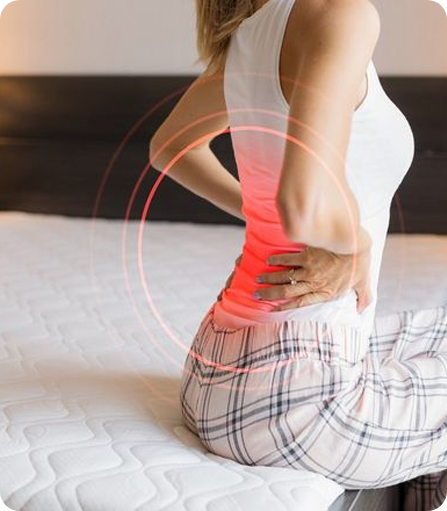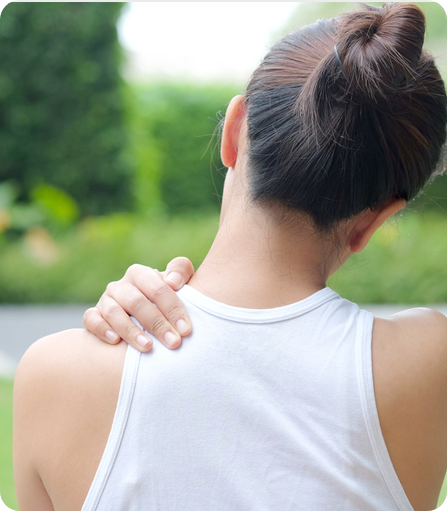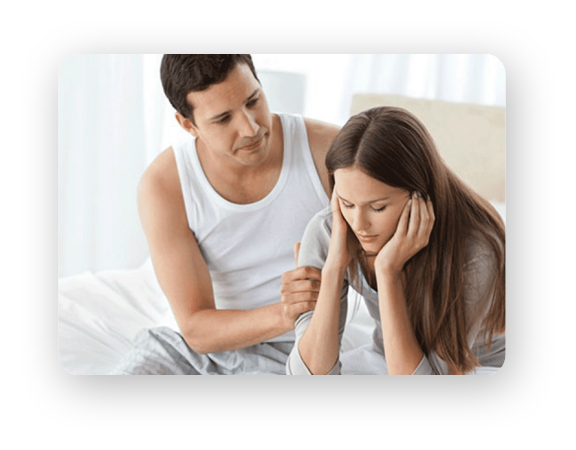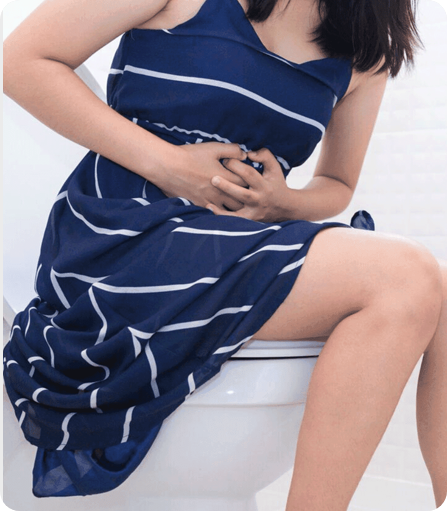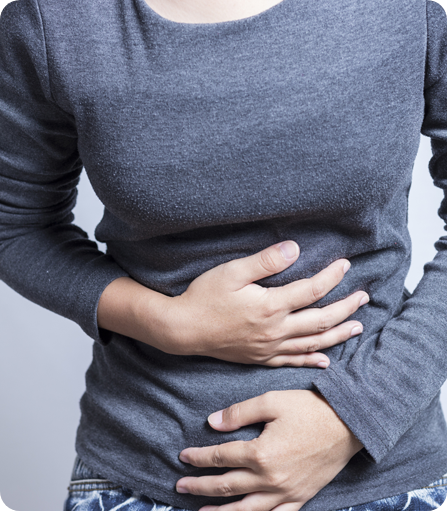Dysmenorrhoea (or painful periods)
Pain is undoubtedly the first symptom of endometriosis. It is generally pelvic pain that
occurs before, during or between periods. The pain can vary from one woman to
another.
You will feel it in particular at the back of the uterus, just at the level of the pelvis.
In concrete terms, it manifests itself as a sensation of electric shock or burning in the
lower abdomen, very often radiating to the legs or lower back.
Dysmenorrhoea or painful periods can have several origins and the symptoms that accompany
them are just as diverse: nausea, vomiting, fever, migraines, etc. In
general, to relieve them, you can take anti-inflammatories (Ibuprofen, Antadys®),
antispasmodics (Spasfon®) or natural treatments based on plants, essential oils or herbal
tea.






